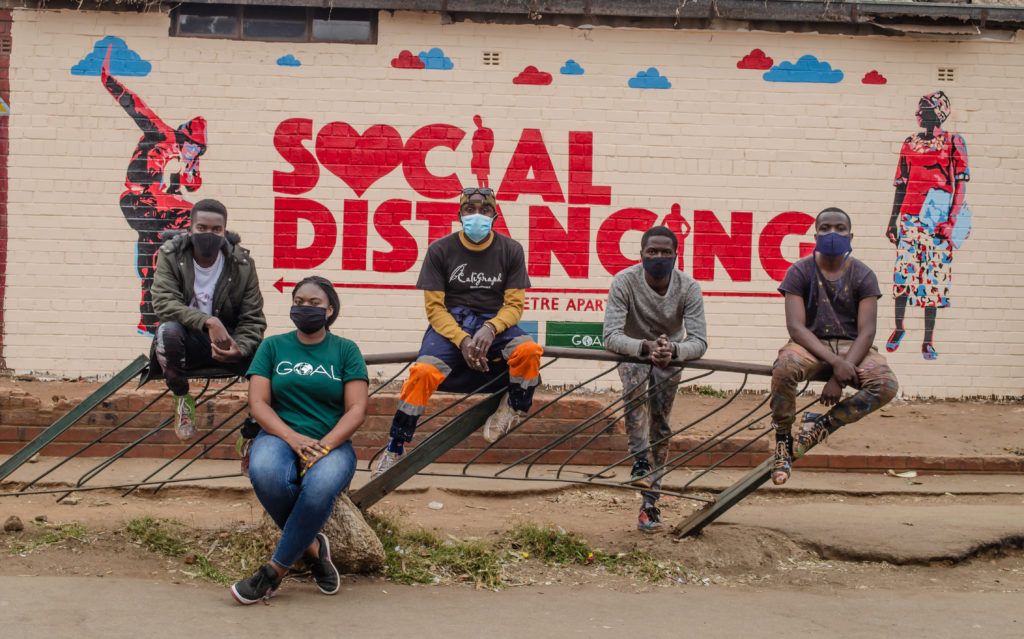 Press Release
Press Release
December 31, 2020 • 2 min read
GOAL has revealed it has reached more than 17 million vulnerable people with vital Covid-19 education awareness messaging and supports since the start of the pandemic in March.
Announcing the figures, the agency warned that Covid-19 is triggering a serious “hunger pandemic,” saying the virus is the final straw for millions already struggling to survive the impacts of climate change, conflict, drought, and other natural hazards.
Since March 2020, GOAL reached approximately 12.5 million people through mass Covid-19 education campaigns using radio, Whatsapp, and mobile messaging, with an additional 4.5 million people benefiting from direct Covid-19 support.
The largest share of GOAL’s Covid-19 information and awareness program reach was in Zimbabwe, where 4.5 million were educated on social distancing, hand washing, and the importance of wearing masks through radio ads in a private sector partnership with mobile advertising company Promobile. The Zimbabwean broadcast campaign was supported with funds from Irish Aid.

Meanwhile, four million were reached with information messaging in Sierra Leone, nearly three million in Malawi, and 2.6 million in Ethiopia, with the rest spread across other countries.
In addition to awareness messaging, GOAL supported:
- 4 million people with access to safe water including approximately 900,000 in Syria.
- 524,000 people with soap and other hygiene items.
- 1,000 health facilities increasing capacity, primarily in Sierra Leone (436) and Ethiopia (389). These health facilities served 6.9 million people who were supported with improving infection control, including 4.6 million people in Ethiopia.
Central to GOAL’s Covid-19 response is the Community-Led Action approach which the agency created in response to the Ebola outbreak in Sierra Leone, Guinea, and Liberia in 2014. This approach involved empowering communities to develop plans at local level to isolate and shield those most at risk, and to manage cases of infection.
GOAL Deputy CEO and Head of GOAL’s Covid-19 Task Force, Mary Van Lieshout, said that apart from support from the international community for the large-scale food security challenges expected next year, there also needs to be focus on weak or non-existent healthcare systems with very limited testing kits, ventilators, ICU beds, and medical staff. She said restrictions of movement have significantly impacted people’s ability to earn money, resulting in large-scale shortages in food and basic household living items.
She pointed out that The World Food Programme (WFP) has warned that 130 million additional people are at risk of being pushed to the brink of hunger by the end of 2021.
Ms. Van Lieshout added: “Bold action is needed in 2021 to prevent malnutrition and food insecurity crisis. Governments and Agencies will need to move quickly to implement social protection programmes to benefit the poor. Targeted assistance in the form of cash support, food aid and climate smart agricultural inputs must be made available for those at risk of further shocks, food insecurity and malnutrition.”
“While there is so much uncertainty ahead we must remain united as a global community to address the urgent food and health systems needs for millions of families under chronic pressure without any safety nets.”
